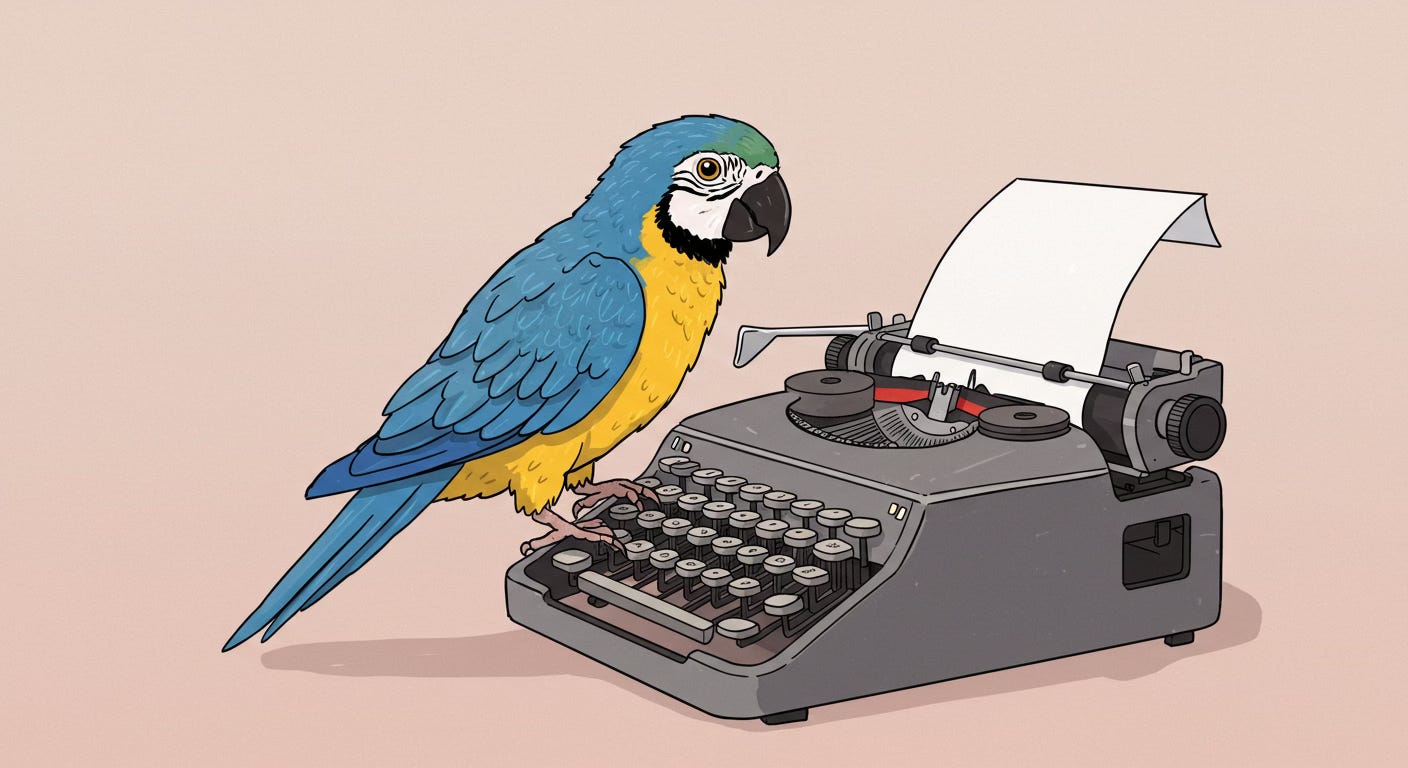Let’s get this out of the way: if you’re not using AI in your work, you’re falling behind.
Whether it’s drafting posts, brainstorming ideas, or sharpening your social strategy, tools like ChatGPT give you an advantage.
But there’s a problem: it’s starting to show. After 20 years in writing and editing, I can spot the fingerprints instantly.
And now the research backs it up: we’re all beginning to talk and write like ChatGPT, whether we realise it or not.
If you want to know whether your writing sounds human or machine-made, there are a few obvious signs worth paying attention to. 👇🏻
— Millennial Masters is sponsored by Jolt ⚡️ reliable hosting for modern builders
AI is changing how we write and speak
The Max Planck Institute analysed over 740,000 hours of academic talks, YouTube videos and podcasts. They found that since ChatGPT’s release, words like delve, meticulous, adept, realm, and swift have surged by up to 51%.
One word stands out: delve. If you’re still delving, you sound like ChatGPT.
On the flip side, words like bolster, nuance, and unearth have declined. In other words, AI is reshaping what we say, and also what we stop saying.
This is the cultural feedback loop in action: AI is trained on our data, spits out certain patterns, and now those patterns are flowing back into how we communicate with each other.
Overall, it’s not a bad thing that ChatGPT is helping expand our vocabulary, but take the study with a pinch of salt. Many YouTubers or podcasters use ChatGPT to write their scripts, so the AI language will make its way through.
The dead giveaways
People can spot when something feels machine-made, and can stop taking you seriously.
Clients, investors, and audiences need to sense there’s a person behind the words. That shows up in quirks, tone, and even the rough edges that AI tends to smooth away.
Writing that sounds alive keeps readers engaged, and more importantly, keeps them believing you.
Here are the biggest tells I’ve seen (and overused myself before editing them out):
1️⃣ The parallel structure problem
If your sentence goes: “It’s not just X, it’s Y,” congratulations, you sound like ChatGPT. It’s a construction the model loves to overuse. Humans write with more messiness.
2️⃣ The em-dash obsession
Yes, I’ve been guilty of this too. ChatGPT leans heavily on em-dashes (that’s this long line —) to stitch ideas together. One or two can work, but a wall of them screams AI.
3️⃣ The vocabulary drift
Words like prowess, tapestry, delve, realm, and adept are now linguistic watermarks. Swap them for more grounded alternatives that fit your natural style.
4️⃣ The fake sincerity
Phrases like “let’s unpack,” “no fluff,” or “at the end of the day” have been adopted as AI crutches. They feel polished but hollow, so just cut them.
How to fix the AI voice
Here’s what I recommend:
Edit, don’t copy-paste. Use ChatGPT as a draft assistant, rather than a finished product. Trim the parallel structures, kill the clichés and swap out the vocabulary tells (I have a list coming up).
Use voice dictation. When I dictate into ChatGPT rather than type prompts, I get output closer to my own tone. Speaking naturally forces the model to work with more human context.
Keep your stumbles. Don’t iron out every imperfection. The half-finished phrases, regional idioms, or slightly clumsy turns of phrase signal that you’re real.
Words that give you away
You can’t prompt your way out of this. You can tell ChatGPT “don’t use delve” or “avoid em-dashes,” but the fingerprints slip back in. The patterns are baked into how the model was trained.
The fix is editing with a human eye, by stripping out the tells and replacing them with words that sound like you.
Delve → look into, explore, break down
Realm → space, field, world, industry
Prowess → skill, ability, strength
Tapestry → mix, web, mess, backdrop
Adept → good at, skilled, sharp
At the end of the day → in reality, bottom line, the truth is
Let’s unpack → let’s break this down, here’s what matters
No fluff → straightforward, cut to it, here’s the point
Just scratching the surface → barely started, only the basics
A game-changer → a big shift, a real move, it changed things
Paving the way → opening doors, making room, setting things up
Harnessing the power of → using, applying, putting to work
Unleashing potential → developing, building, making the most of
Flaws are proof of life
At some point, everyone will start to sound the same if they let AI do the talking.
The irony is that the rough edges (the stumbles, the quirks, the unpolished lines) are what make your voice cut through.
AI will keep getting better, but your advantage will be in proving there’s a human behind the words.
That’s what people trust, and that’s what they’ll come back for.
Further reading on Millennial Masters:
Don’t let AI kill your personal brand 🛡️
Everyone sounds like AI. Make your voice unpromptable... with AI





I love this! I published a similar article in my Medium account, great minds!
❌Digital landscape